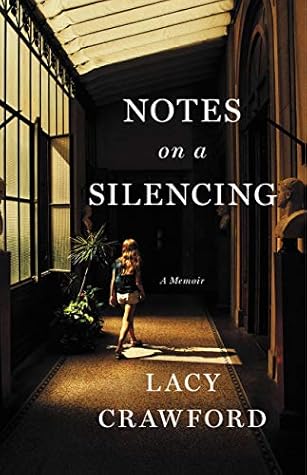More on this book
Community
Kindle Notes & Highlights
I had a therapist once, in my early twenties, who suggested that I might describe the event to her and then “never tell it again,” positing a future in which I would have no use for it, which is a way of saying that the assault would have no use for me. She was talking about moving on. I was still mired in the search for remedy.
Little-known fact about victims: they can tell whether you believe them by which term you use when you ask what happened to them.
Aha! Desire! As though my choice on one night cost me the benefit of the doubt forever. The blanket projection of proto-consent, cast across all the days and nights of my life.
In other words: to believe in the perfect victim is to believe in no victim at all.
In bearing witness, we’re trying to correct a theft of power via a story. But power and stories, while deeply interconnected, are not the same things. One is rock, the other is water. Over time, long periods of time, water always wins. What I want to know, even now, is: how?
It’s a curious thing how children are wired to ask for help when hurt or frightened—Ouch! Help me!—but shame turns this inside out: I can survive this as long as nobody else ever knows. As though secrecy itself performed some cauterizing function, which, of course, when it comes to the matter of self-delusion, it does. I couldn’t talk about what had happened without having to let myself think about what had happened. The secret served me.
Such a good girl, hanging on by a thread. Given the chance, I would finish her off.
I knew virginity to be the teacup construction of a world that holds female sexuality to be a possession.
There is a contemporary inquiry into shame that suggests that shame is not as deeply rooted in guilt as in power.
I thought I recognized the feeling contemporary artists recalled when asked how they felt in treatment with new psychotropic medications and they described being dulled and divorced from themselves. They wanted off the drugs and back into the storm. I envied them their sense of direction, even if it led to unspeakable misery.
(What I’d revealed! And the ground did not open up, and the trees did not splinter and collapse, and the moon did not slip, and I did not explode.)
He had been gentle. This above all broke me.
For decades I forget them, if forget is the right word for the white blast of nothing the mind deploys like an air bag at the memory’s approach.
where you could either get counseling or be perfect, but not both, and that if you were not perfect, you were not safe. People would know you needed help.
I learned that while the fallen woman may keep her unloved door plain and her drapes drawn, her circle small and her fire low—if she’s wise, I suppose, she will—the path to her back stoop will be well-traveled. I guarantee it.
“I wanted to kill myself.” “I’m glad you didn’t.” “Maybe I should have, though,” I said, feeling swamped again. “There’s still plenty of time.” I laughed.
“The denial by the listener inflicts…the ultimately fateful blow,” Brison writes. If nobody believes you, part of you cannot survive. I grasped this instinctively. I carried
Happens to girls. Not what girls do.


